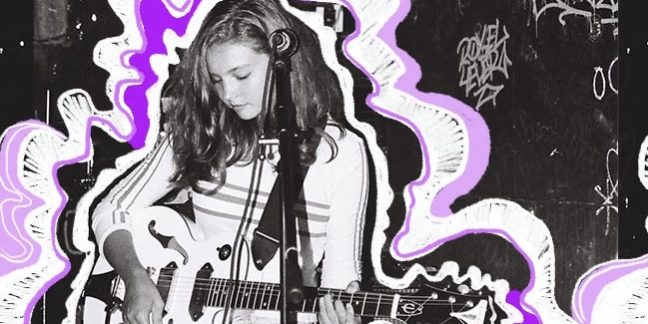Music and songwriting are crucial pieces of my identity, but as a woman I have begun to feel out of place in the music world.
Music did not always feel so gendered. In elementary school, writing songs felt natural; a childish burst of creativity stemming from the same place as the urge to throw mud at each other and play dress up. Later in highschool, I started playing DIY shows with my band and spent over a year recording our EP. It felt like an indie-teen movie. I loved watching my friends dance to my music and sing the words back to me and of course the graffitied, gum-covered venues I played in. But mostly it felt right. Like I had known off the bat that I would follow this path.
But those days in high school also revealed to me the gendered reality of making music. Being backstage at those underground venues bitterly represented the gender makeup of the music industry. Except for the rare singer or musician, I was the only girl there.
When you are taught to worship the “cool guy” that you see in music, tv shows and movies like The Breakfast Club and even Camp Rock, it’s easy to internalize their veil of superiority. At first it felt validating to be the only girl. In a twisted and self-sabotaging way I felt honored to be a part of their club. Especially after being labeled the sweet, simple singer/songwriter girl, belonging to open mics and acoustic bonfires, I was excited to play rock music with a full band. I wanted to impress them.
My validation was short lived. A few weeks after I began to play shows I learned that all of the other bands were getting paid to play, meanwhile my pockets were empty. I was bringing in more than half the audience, but the men who controlled the venue never tried to reach me backstage to give me a cut of the profit. I began to notice the tight huddle of men that would gather after each show to discuss pay and that my male bandmates were the ones being pulled aside to discuss when I would go on or how we wanted the levels. It was a classic example of the subtle exclusion women face in male dominated fields. The other bands and venue owners were more likely to strike up a conversation with my male bandmates and organically fall into a situation of discussing pay and other formalities than they were with me. The boys may have respected my abilities enough to let me play, but they did not see me as “one of them.”
While my situation is demoralizing, I recognize the privilege I hold in this community. As a white woman, my acceptance into the indie sphere is not inhibited by the color of my skin. As a singer, I also do not face the discrimination that female bassists, guitarists and drummers do. I am grateful to my parents and community for supporting my passion and understand that being able to pay for a guitar and having the leisure time to write songs is a luxury. But I am frustrated with watching the same story play out. I am either pigeonholed into the soft singer/songwriter role, where I am accepted but deemed “basic,” or attempt breaking into a male-dominated rock scene and am de-legitimized. Truthfully, I don’t know if I want to be a heartfelt folk singer or belt out rock songs but it’s unfair that the decision feels like it’s already been made for me.
I am currently working on my second EP and I am proud and excited to release my next batch of songs. Immersing myself into the music of female musicians like Julia Jacklin, Brittany Howard and Mitski reminded me of the value of my craft and that I can use my experiences as a woman to write great songs. I hold onto these instances as a reminder to be vocal in face of sexism, to support and encourage my fellow female musicians and to be conscious of the fact that our equality is worth more than men’s comfort. I was a songwriter before some boy told me that it was cool and will be for the rest of my life.




